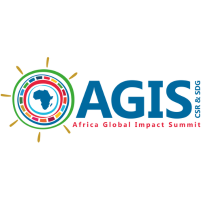| Discover Algeria | About us | Press area | Contact |
Digitization, Research Development and English Teaching: Baddari's University Ambitions

-The university strives after being involved in
economics and development, and has stepped up efforts to turn graduates into
entrepreneurs. Can we have an idea of what is happening now?
Now, in addition to providing education and
scientific research, the university must also play an active role in business
creation, and thus in job creation. The graduate must no longer be a simple job
seeker but a job creator, a wealth creator. As a first experience this year, we
have therefore directed future graduates to end-of-study projects that are in
line with the conditions for creating start-ups and micro-enterprises.
Following the instructions of the President of
the Republic, we have worked, together with the Ministry of the Economy of
Knowledge, Start-ups and Micro-enterprises, to implement about 10,000
innovation projects on all the projects presented by the students. We believe
that supply-side logic must now supplant demand-side logic in academia. It is
up to the students, supervised by the institution, to propose their ideas and
projects, in the economic and other fields, to society. That's our philosophy.
- Digitalization is a main line of government
action, the university intends to be its locomotive. What are the prospects in
the sector?
As part of the Digital Master System in Higher
Education, we have put in place a strategy that addresses 12 challenges, 7
strategic lines and 102 operational programs. We plan to set up 42 digital
platforms dedicated to academic institutions, and 4 to academic works. 35 are
operational. The aim is that, from the beginning of the new school year, a
student from Tamanrasset will be able to enrol in the University of Bab
Ezzouar, follow her course in Tamanrasset, be evaluated in Tamanrasset...
without necessarily having to move to Bab Ezzouar.
Starting next year, we will introduce artificial
intelligence and innovation as a subject of education for all specialties,
starting in the first year of training. Increasing student success rates is a
key goal of digitalization. It is a national, educational, economic and social
priority. Digitalization should help students succeed by enabling them to
acquire more knowledge.
- You have launched a platform dedicated to
the foreign demand for training, under the label “Study in Algeria”. What
nationalities are you targeting…?
The means are there. We have 112 academic
institutions, including 54 universities and 39 graduate schools. These schools
are up to international standards, as for example the Higher School of
Mathematics and the Higher School of Artificial Intelligence. In order to make
the training system more visible and attractive, we have launched the ‘Study in
Algeria’ label.
- The English language is progressively promoted
as the language of instruction at the university. How is this actually
happening on the ground?
We have therefore set up an extensive distance
learning program, through the EDX platform, and launched intensive training in specialized
centers in universities.
Of the 64,000 university teachers, 34,000 are
currently in training. By next July, and even during the summer holidays, we
will be using the EDX platform for an additional distance learning program. Our
goal is to make each teacher acquire B2 or C1 level that can enable them to
communicate and teach in English.
We also intend to train new students, the 2023
bachelors, for B2 level at least, remotely. The program is scheduled for July
20 to September 20. Our forecast is for nearly 300,000 new university students
to be trained.






















